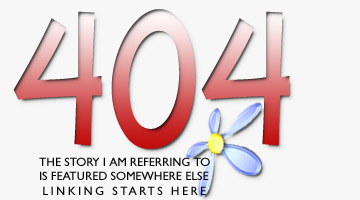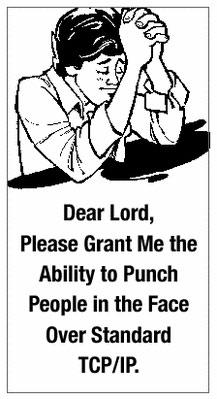Together with Jason Schramm from Shiwej, I’ve decided to start a guestblogging series which will run on both our blogs at about the same time.
Today (December 20th, 2005) is the ninth and second to last interview in this series, and we turned our ear to Chris Nolan, a website startup junkie from Toronto who’s currently in the running with two nominations for an award on Web 2.0 blog and SEO blog at the KBCafe Blog Awards.
1. How did you get into blogging?
Since pre netscape 1.0 days I’ve always had a personal website in one form or
another. Around 2002 I was updating it more regularly and didn’t want to lose my old content after I updated the main page so I started doing it ‘journal style’. I resisted at first to have it setup with RSS feeds and the rest, but after a disc crash in 2004 (ironic since I set things up so I wouldn’t lose changes) where I lost a couple of years worth of content I decided in my rebuild I’d include some regular blog features, and thus became a blogger by name. I think it wasn’t really until I went to my first blogger meetup, and met other bloggers that I truly identified myself as one though.
2. What is your blog’s name, what is it about?
Nothing too original, I just named it after myself (what is blogging if it isn’t tainted with bit of vanity?), I Am Chris Nolan.ca [rss]. By having such a generic name as well, it leaves me open to blog about whatever I feel like. I don’t feel compelled to stick to certain themes as really I just do it for myself, and if people happen to come by and read it and find something interesting for them, so be it (I have tag/category specific feeds too so people can subscribe to just what they like). A bit of a wide summary of my typical posts could be described as a movie loving geek living in Toronto who comments and sometimes rants on aspects of technology and society as they cross his path.
I’ve also recently started up a blog @ http://Kekova.ca/ with my wife as we learn RubyOnRails together, and another one @ http://blog.kweschun.com/ called Kweschuns & Answers which is for a project I’m working on (shameless plug?).
3. Are there any policies you follow when reporting on an issue?
I don’t have any sort of formal document if that’s what you mean.’Reporting on an issue’ makes it sound all very formal as well, and I’ve tried at times to specifically keep my blogging informal. I just try to follow my own sense of what’s right and wrong. Is this coming across as very egotistical?
4. What guidelines do you follow when linking to an outside source?
It is very rare when I make a post that doesn’t include at least one link to another source, and I often have many. But again, I have no real policy on it. Linkage for me is just such a built in thing that I wouldn’t have it any other way. I think a lot of bloggers don’t really understand how the information is spread out behind the scenes in terms of what google and sites like Technorati do with the links, and some of the lack of linkage is more ignorance than evil.
If a link exists for what I’m talking about, I do my best to put it in. I think we’re on a cusp of things where this will be made even easier to do by the different blogging softwares as well so that those that don’t take the extra time involved to mark up their posts can have it made easier on themselves.
5. Do you think you are trustworthy? Why do your readers trust you?
Of course *I* think I’m trustworthy, but does anyone not think that about themselves? Do my readers trust me? I guess I’ll have to ask them. See that kweschun soon on my blog.
6. Do you think bloggers should be treated as journalists and be privy to the rights and protections that journalists enjoy?
This is something I’ve thought long and hard about and my opinion is still up in the air but definitely leaning towards no.
Trust in the main stream media is declining, but is 100 million voices in the dark the answer? Maybe, maybe not. If a blogger is to get the same rights and privileges as traditional journalists than they’d be expected to follow the same standards and code of ethics that traditional journalists do as well. I don’t see that happening, nor do I completely agree that it should. Where does one draw the line, and how does one communicate that line to such a diverse readership?
The age old problem of a journalist trying to appease their advertisers is now a problem for a certain class of blogger as well since they draw chucks of their revenue from advertising, perhaps that hassle alone is worth some of the journalist perks?
If you haven’t read "What are Journalists for?" by Jay Rosen, it may be of interest to you. Also "We the Media" by Dan Gillmor.
That said, bloggers should be considered writers and their written word should be treated as such to round out the blogarism topic. If somebody writes something that inspires or enrages you, write something about it on your blog and link back to the source!
Thank you, Miel and Jason for selecting me for your interview series.
Initiated together with Jason Schramm, this guest blogging series will continue to make people aware of the power of linking and the need to give credit to the people who earn it.
Together, we’re improving the Blogosphere, you can help too if you start linking here !
And be sure to check out Jason’s post here.
Note :
Jason and I are not related but have a common field. Jason writes for the BlogNewsChannel, and takes care of Apple Watch, very surprisingly the Apple section of Nathan’s network.
I sometimes write on Inside Google & Inside Microsoft.

